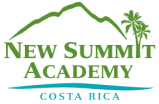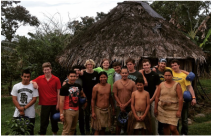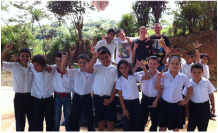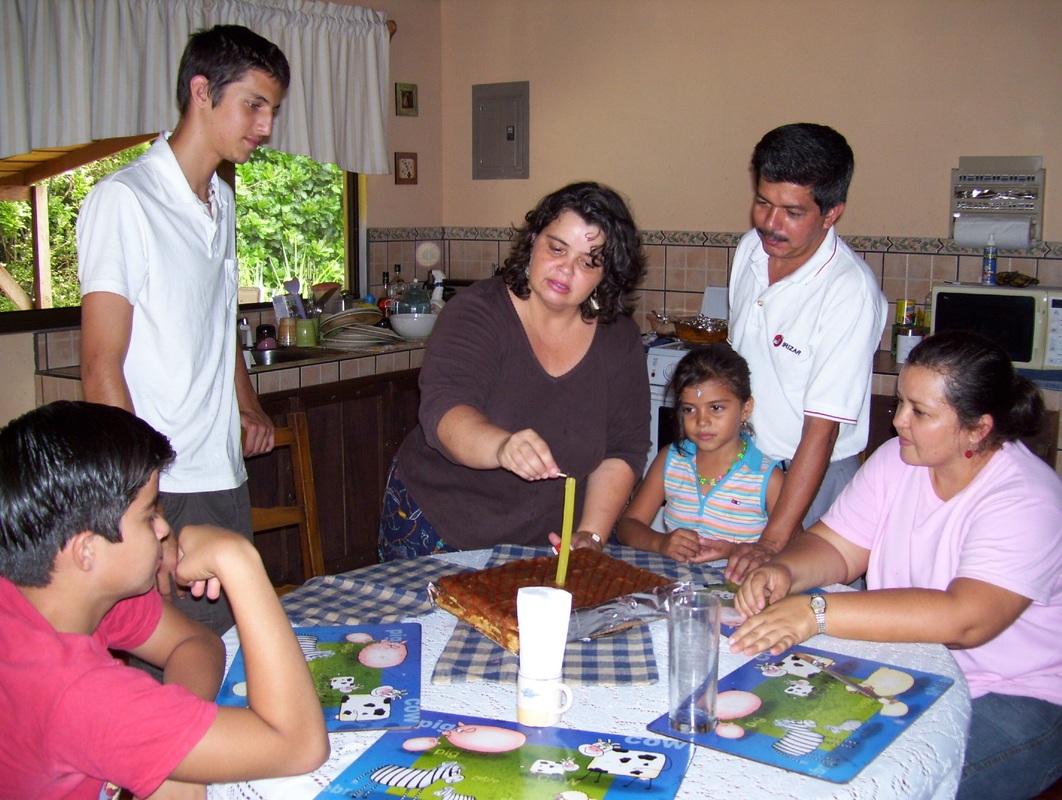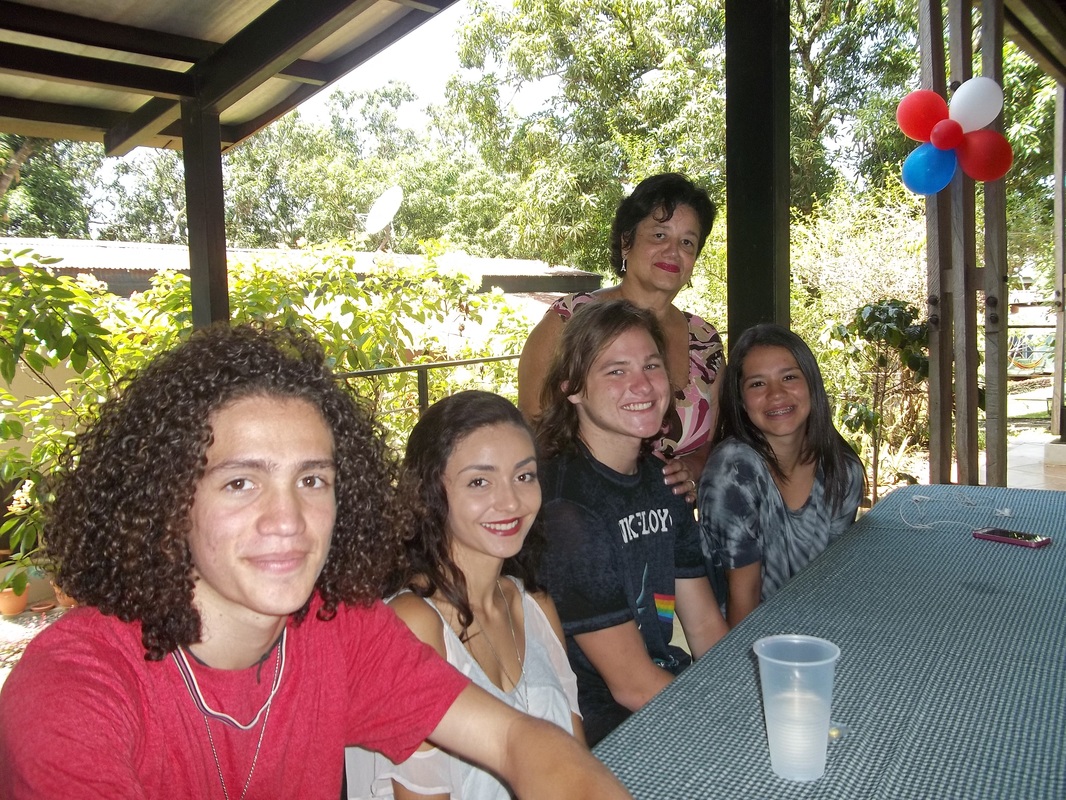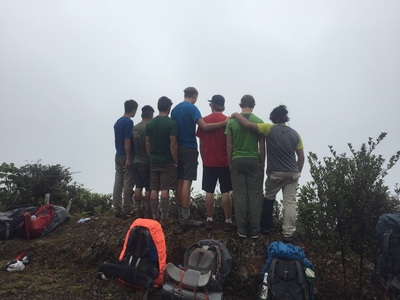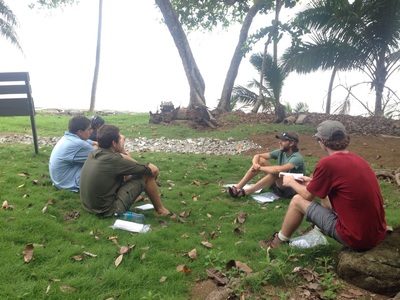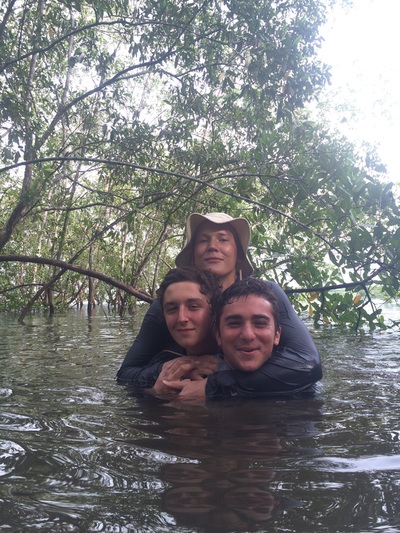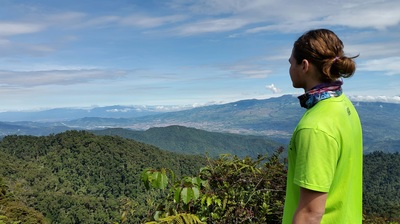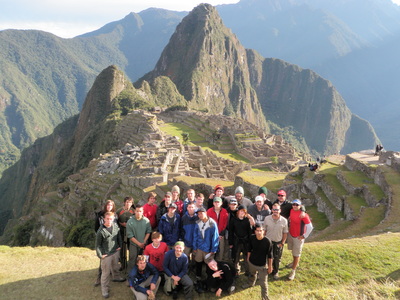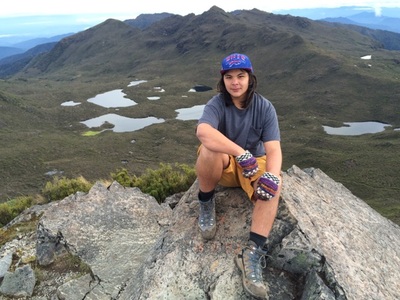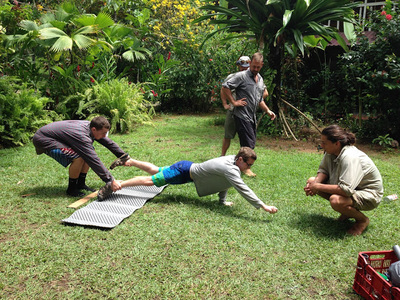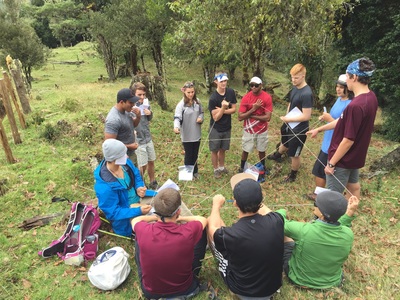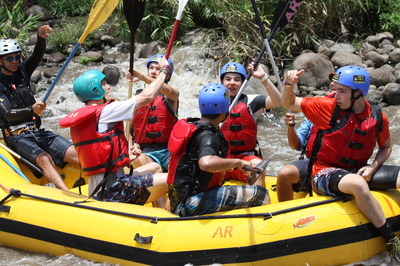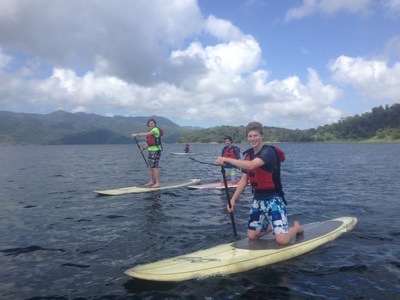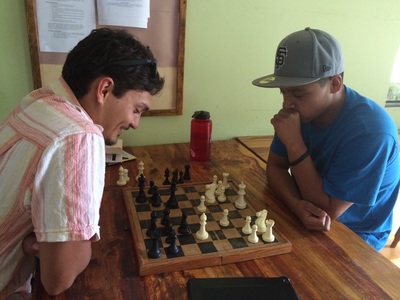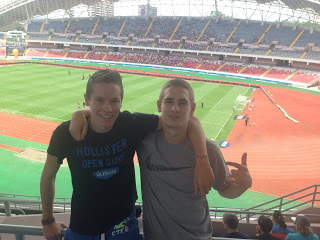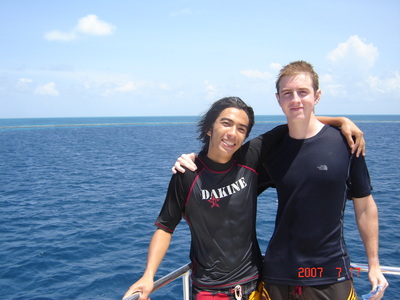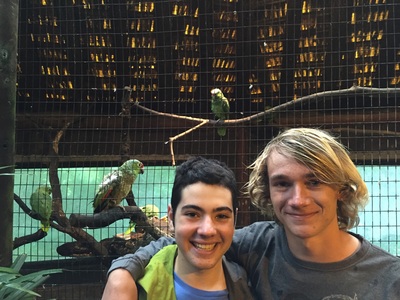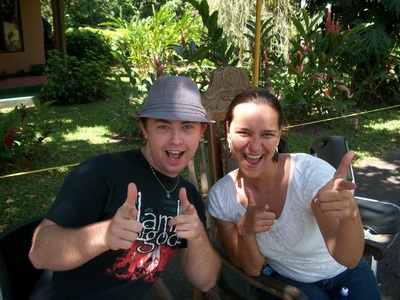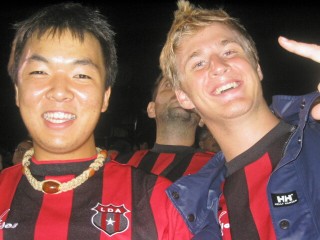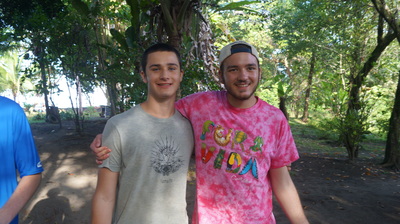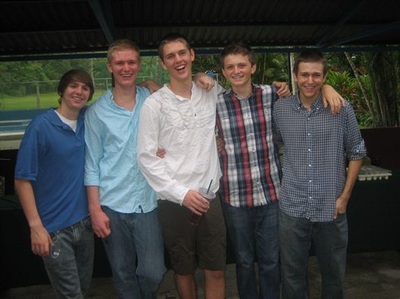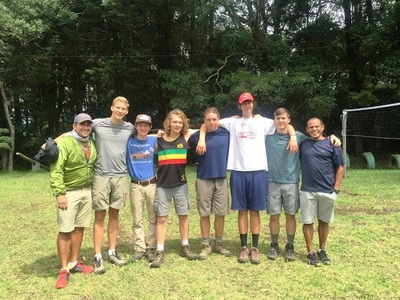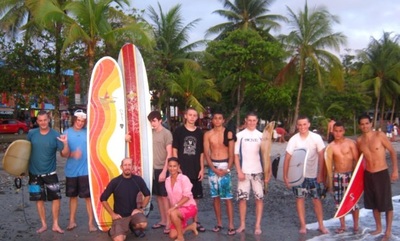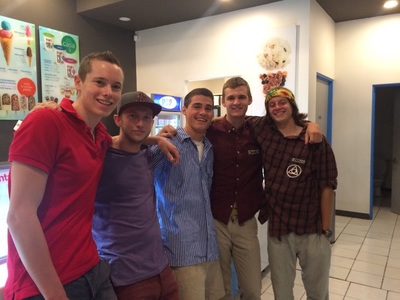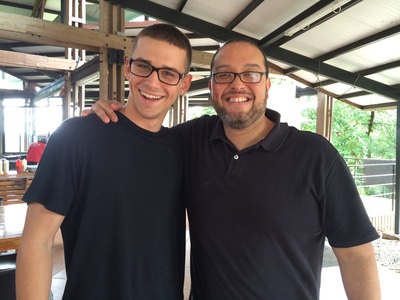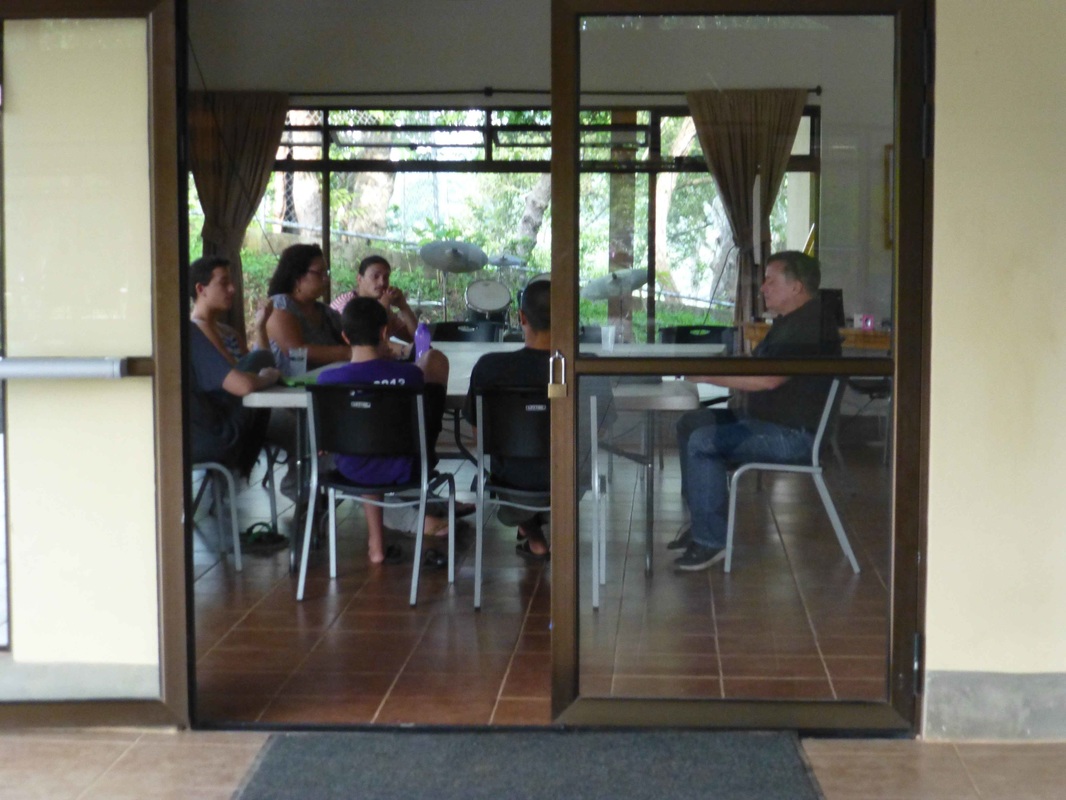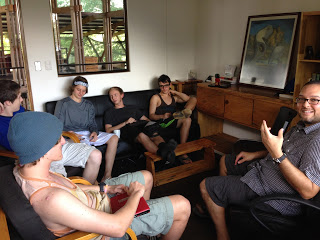"Personal Growth"... not "therapy"
We use the term "personal growth" instead of "therapy" to define what we do at NSA. Our students are not broken and do not need to be fixed. Part of what we model and teach is that every human being is on a personal growth journey throughout their entire lives. It's all about life-long learning! What is most important is to understand one's own process of personal growth and one's unique way of reflecting, learning, growing, changing, setting and reaching goals, and becoming their best self.
Cultural Immersion / Study Abroad Benefits
|
An incredible amount of personal growth occurs through the process of living and studying abroad. By stepping out of our comfort zone to experience new perspectives and lifestyles, we foster greater resiliency and therefore confidence, become more cognitively flexible and emotionally adaptable, and begin to clarify our own personal values and overall sense-of-self. (see “Emerging Young Adulthood” webinar re: cultural immersion therapy)
|
|
In Costa Rica, there is a strong emphasis on the concept of “family”, and so students of New Summit Academy live amidst a “relational” approach to life. This exposure occurs through interacting with “Tico” (term for Costa Ricans) staff as well as local community members. Mid-way through their stay, NSA students begin to participate in the “Homestay Program” (see Experiential Education) where they spend Sundays with a consistent Tico family to enhance their language acquisition and cross-cultural experience.
|
The Integrated "Aventura©" Benefit
|
One of the most unique and powerful tools for therapeutic growth that exists at New Summit Academy is NSA’s unique program of “Aventuras”. An Aventura is a nature-based and culturally-based experience that takes students outside of their comfort zones to experience some of the most unique, beautiful, biodiverse environments while challenging oneself personally and collaborating with peers as they achieve daily tasks and weekly trip itineraries to complete a once-in-a-lifetime adventure. Many Student Clubs foster the opportunity for an Aventura experience (surfing, rock climbing, etc), as do the week-long, recreational trips that occur at the end of every quarter (where students are exposed to a variety of adventure-based activities including zip-lining, whitewater-rafting, hiking, etc.).
All of these experiences are opportunities to explore personal interests/passions, challenge potential fears, improve skill development and confidence, and deepen relationships in a beautiful, natural setting that connects one’s brain with nature. “Integrated Aventuras” are exceptionally beneficial due to their association with program progression and therefore act as therapeutic “Rites of Passage”. These Aventuras are specifically designed to evoke personal insight (through writing assignments and evening discussions), grow resilience (by overcoming physical and emotional challenges), improve communication skills (through leadership roles and peer feedback sessions), enhance the ability to work as a member of a team (through a focus on expeditionary behavior), and elicit a sense of content mastery (through academic achievement and social skills development). The sense of “earned pride” and confidence that results from these milestone achievements lead to a more developed “sense of self”. |
NSA's Milieu Approach
|
The therapeutic components of NSA stem not only from the experiences we offer but also from the relationships that are built between the students and other students and staff. The basic premise of milieu therapy is that all of our difficulties arise and are expressed in our relationships with other people. By focusing on interpersonal relationships and cooperation within a social community, students have an infinite number of opportunities to gain insight into their self-defeating patterns of thinking and behaving, and to develop and practice new ways of relating to the world around them.
A boarding school environment provides the ideal canvas to create a structured and carefully defined social system, free from many of the pressures of the larger social milieu, while reflecting the realities of young adult social interaction. The goal is to provide an environment that ensures safety while practicing new coping skills and developing resources to transition to the “real world. Healthy and open relationships are crucial in milieu therapy as all members of the community must be open to personal examination and growth. Faculty and staff model patience, flexibility in thought, and willingness to continually work to solve problems and grow. This self-reflective teaching model recognizes that all human beings share similar psychological processes, and by doing so, creates a therapeutic environment that allows students to let go of emotional defenses and experiment with new ways of thinking and behaving. Therapists often work evenings and weekends, participating in recreational trips, Aventuras, and student life activities in order to develop strong, trusting relationships with each student which creates a rich, intensive, therapeutic milieu. This reflects a mentoring- and relationship-based approach instead of an institutionalized approach. New Summit Academy is an intentional community that prioritizes emotional safety within a positive peer culture. Research has shown that peers have a greater impact on each other than anyone else during adolescence. A positive and empowering peer culture is the most powerful component in the equation for effective change as peers live and attend classes together, share living spaces and daily living activities, participate in therapy, and give constant feedback to each other. A positive peer culture is based on mutual respect, support, and care, and will create a healthy milieu where students will:
|
Community Council Meetings©
Another powerful therapeutic component developed in 2005 and utilized since at New Summit Academy is something known as an “Community Council Meeting©" (CCM). This is a forum consisting of peers (one for whom the CCM has been scheduled; others chosen to offer support) and appropriate staff (generally members of the PROPS team) to aid in a student’s Personal Growth process. This forum allows students an opportunity to “check in” regarding their therapeutic process by sharing perspectives and receiving feedback (which promote insight and a sense of belonging among the group). They are used on a quarterly basis (for personal goal development regarding Areas of Attention) and as needed (based on individual strengths and struggles).
In the CCM setting, student empowerment is prioritized; all decisions and recommendations that may occur (such as attending more clubs / assuming a particular leadership role to elicit social engagement, or suspending internet privileges to refocus on personal goal development, etc.) are made by consensus. This means that students’ perspectives are valued equally valued to that of the staff team. This “power distribution” promotes a sense of personal credibility among the peer group; as a result, students who are chosen to offer support in a fellow peer’s CCM take their role seriously. As “support students” begin to trust in the value of their perspectives and opinions, they gain greater confidence and improve their overall “sense of self”. Students for whom a Community Council Meeting has been called tend to gain more personal insight, goal clarification, skills development (through resulting decisions / actions), and a sense of belonging within the milieu (for all constructive feedback is solution-oriented and shared with a sense of compassion).
A particularity of these groups is that any student of the NSA community can “call a Community Council Meeting” to address his own situation or a situation regarding another student in the community. The process helps students develop and then master the ability to connect with one another from a place of care and acceptance, learn to be assertive while not taking every piece of feedback personally, and allow others into their emotional world. Some of the most commonly practiced skills in CCM are:
In the CCM setting, student empowerment is prioritized; all decisions and recommendations that may occur (such as attending more clubs / assuming a particular leadership role to elicit social engagement, or suspending internet privileges to refocus on personal goal development, etc.) are made by consensus. This means that students’ perspectives are valued equally valued to that of the staff team. This “power distribution” promotes a sense of personal credibility among the peer group; as a result, students who are chosen to offer support in a fellow peer’s CCM take their role seriously. As “support students” begin to trust in the value of their perspectives and opinions, they gain greater confidence and improve their overall “sense of self”. Students for whom a Community Council Meeting has been called tend to gain more personal insight, goal clarification, skills development (through resulting decisions / actions), and a sense of belonging within the milieu (for all constructive feedback is solution-oriented and shared with a sense of compassion).
A particularity of these groups is that any student of the NSA community can “call a Community Council Meeting” to address his own situation or a situation regarding another student in the community. The process helps students develop and then master the ability to connect with one another from a place of care and acceptance, learn to be assertive while not taking every piece of feedback personally, and allow others into their emotional world. Some of the most commonly practiced skills in CCM are:
- Understanding and validating each other’s perspective and experiences.
- Assertively expressing thoughts and feelings.
- Being accountable for one’s actions and holding others accountable.
- Sharing fears, insecurities, flaws and challenges openly with one and other.
- Building trust and empathy through transparent interactions.
- Setting realistic expectations and stating boundaries on a regular basis.
- Practicing healthy conflict resolution.
|
Community Council Meetings ©. These meetings, created and designed by NSA, consist of at least three peers and three staff members who give feedback and discuss issues with the student before reaching a consensus regarding decisions and recommendations (including therapeutic tasks, restrictions, privileges, natural consequences, etc.) that will best support the student’s process. This is a forum that uses a non-reactive, peer-influenced, problem-solving approach to address an individual student’s particular situation.
The process and content of a CCM are confidential, leaving only the decisions and recommendations public. Community Councils work by consensus, meaning that no decisions or recommendations will be made unless all the Community Council members agree to them. Any member of the NSA community can “call a CCM” to address his own situation or a situation regarding another member of the community. Community Councils are summoned for a variety of reasons, for example, when a students needs to “check in” or needs feedback in a small setting. Other examples are: when the NSA code of conduct has been broken, when there is a specific conflict, when a student is in need of a small group approach, or when a student would like to request a special privilege or wishes to change his student status. Community Council Meetings are an exceptional resource for the NSA community to help maintain its harmony and help students move along in their personal processes, and we encourage all staff and students to use Community Council Meetings as a means of enhancing personal growth and insight. CCMs also support the idea of community and the understanding of how one’s behavior can affect others and vice versa. |
